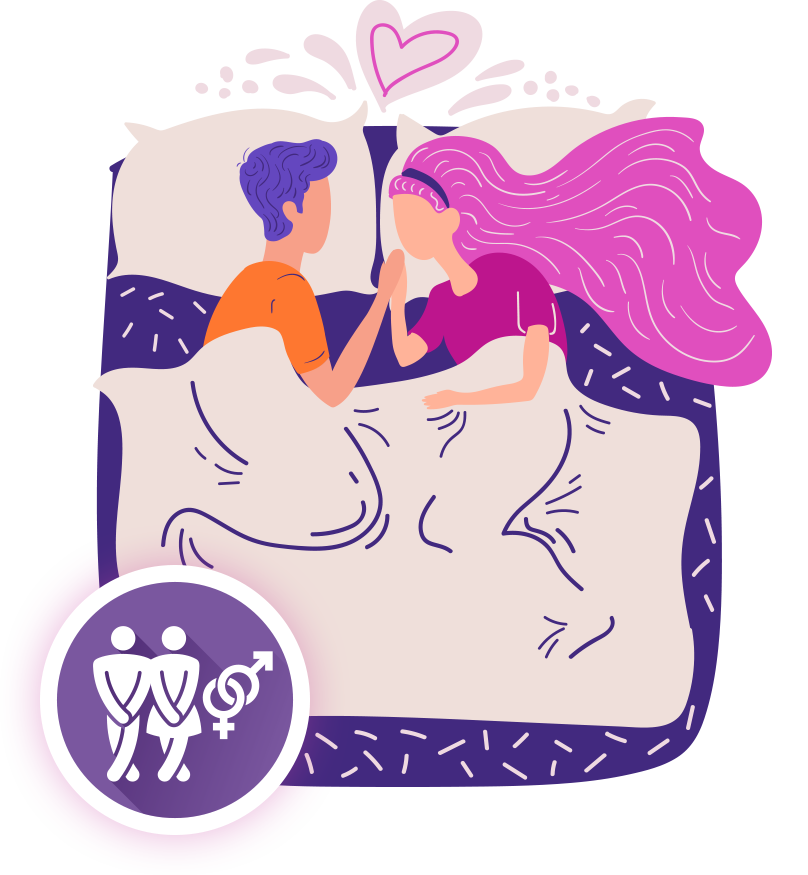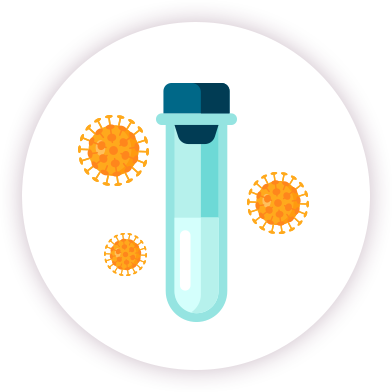STD Screening Test
Sexually Transmitted Infections
Sexually transmitted infections (STIs) are infections that are spread primarily through person-to-person sexual contact including vaginal, anal and oral sex. Some STIs may be spread via skin-to-skin sexual contact. The organisms causing STIs can also be spread through non-sexual means such as blood transfer. Some STIs such as chlamydia and gonorrhoeae can also be transmitted from mother to child during pregnancy and childbirth.

Most STI cases are asymptomatic at the very beginning. It takes a long time for those pathogens to develop symptoms. People infected with those pathogens will unconsciously pass the pathogens to their sexual partners. If left unnoticed and untreated, some STIs can lead to serious health problems such as premature labour, still-births, pelvic inflammatory disease, prostate cancer, eye infection in new-born baby, infertility, etc.
Test Method
This test detects a wide range of STI pathogens (including C. trachomatis (CT), N.
gonorrhoeae (NG), M. genitalium (MG), M. hominis (MH), U. urealyticum (UU), U.
parvum (UP) and T. vaginalis (TV) by real time polymerase chain reaction.
Quality
All test reagents adopted in the assay are being CE registered in-vitro diagnostic (IVD) kit. The whole testing operation, including pre-examination, examination and post-examination processes are implemented according to the laboratory quality management system based on international standard.


Test turnaround time 7 working days
Who should consider the test
- Sexually active individual
- People who have unprotected sex
- People who have multi sex partner
- People who have persistent STD infection
- People who start sexual activities at an early age
Sample requirement
- Urine specimen (Collect 10~30 mL of first-catch urine in a clean polypropylene container.)
- Liquid based cytology specimen (Follow the manufacturers’ instructions for collecting cervical cell specimens in ThinPrep® media.)
Sample Pre-collection instruction
For urine specimen collection, it is advised not to urinate for at least two hours prior to specimen collection.
Sample collection instruction
Urine sample be collected from clinic or by our laboratory through referral.
Follow the instruction from medical staffs or our company staffs for sample collection.
Urine collection procedures
- Check the items inside the collection kit, including a plastic bag and a specimen bottle. Prepare tissue paper and alcohol based handrub (not provided). Make them ready for use.
- Perform hand hygiene with soap and water / alcohol-based handrub.
- Write name and ID number on the label on specimen bottle. Take out the specimen bottle from the specimen bag and open the bottle.
- Collect 10 - 30ml first catch urine
- Close the lid of specimen bottle tightly to ensure no leakage of urine.
- Clean the bottle surface with tissue paper.
- Put the bottle into the original specimen bag. Keep the bottle upright all the time. Clean hands afterwards.
- Store the specimen at 2 - 8°C.
- Contact us for specimen collection.
- Courier will bring along with cooler box and send the collection kit back to the laboratory for testing within 4 hours.
Sample storage and transportation
For specimen not being collected by us
- Urine specimen should be transported at 2 - 8°C
- Liquid based cytology specimen should be transported at room temperature and be stored at 2 - 8°C within 8 hours since sample collection
Reason for sample rejection
- Sample without proper labeling
- Sample not in requested format or insufficient quantity
- Sample in expired container
- Container leakage
- Sampling date is more than 7 days from the receiving date
- Test request form without / with mismatched patient identification information
- Inappropriate specimen container
Factor(s) known to affect results
- Improper collection, handling and storage of specimen
- Inadequate specimen
- Repeatedly frozen/thawed
- Prolonged sample storage


